
The term “fathers” is being deleted from antenatal guidelines in the UK to be replaced by the more general term “birthing partners”. The move has raised concerns as a think-tank published a report showing many men feel their roles as fathers has been downgraded.
The Centre for Social Justice (CSJ) highlighted one NHS website headlined “your pregnancy and baby guide” which listed the word “father” once as one of the options for a “birthing partner”, along with “a close friend, partner, or a relative”. The think-tank said it was an example of a growing trend and noted that the term “birthing partner” – the person who supports the mother in the delivery room – is used 14 times.
The Fatherhood Institute has also highlighted the habit of removing the “father” reference in NHS clinics. It noted that 95 per cent of parents are in a couple relationship, and 95 per cent register the birth together. “Yet despite the overwhelming presence of the biological father, the term ‘woman’s partner’ or ‘mother’s partner’ is commonly used in maternity services. This defines the baby’s father solely as a support person and does not recognise his unique connections (both genetic and social) to his infant.”

A jailed Chinese pastor has denounced an ongoing crackdown on Christian churches as an unjust persecution. The pastor and his wife were arrested alongside 100 church members and detained in southwest China on Sunday, accused of subverting State power, which can carry a prison sentence of up to five years. Two days after his arrest, church members published a letter he had written in September and instructed them to publish if he went missing for more than 48 hours.
In it he wrote that he respected “the authorities God had established in China” and that his aim was not to change institutions. However, he called the government’s persecution of the Church “greatly wicked” and an “unlawful action”.
“As a pastor of a Christian church, I must denounce this wickedness openly and severely. The calling that I have received requires me to use non-violent methods to disobey those human laws that disobey the Bible and God,” he wrote.
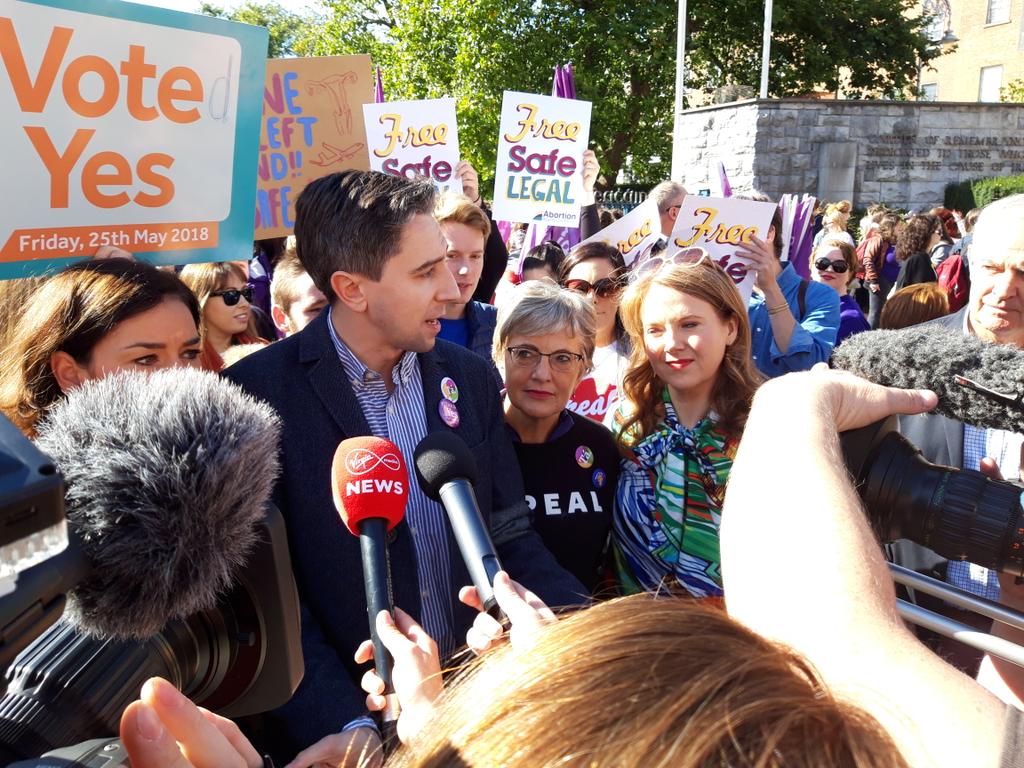
Preparations for the Government’s vast new abortion regime have ramped up over the last few days after the Seanad voted late Thursday night to pass the abortion bill. Not a single amendment was made to the bill that had already been passed by the Dail so it now goes to the President for his signature so as to turn it into law. Dr Peter Boylan tried to reassure pro-choice voters in a radio interview Friday that abortions would be available from the Minister’s deadline of January 1st.
Doctors too began receiving training over the weekend with Minister for Health Simon Harris opening a training day for more than 60 GPs. The ICGP will provide similar training courses ‘online’ this coming week.Only a small minority of GPs wish to provide abortions and hundreds have a strong conscientious objection. They will not prescribe abortion pills or refer women to doctors who will because abortion ends the life of one of their patients.
Clinical guidelines are set to be published only today by The Institute of Obstetricians and Gynaecologists, and the Irish College of General Practitioners (ICGP). They will circulate guidelines to all their members as part of the preparations for the new law.
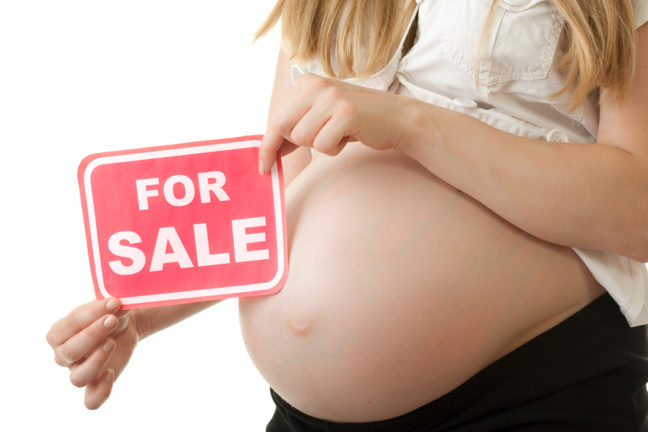
Surrogacy laws in the UK are ‘outdated’ resulting in couples being more likely to go abroad to access it, University of Cambridge researchers have claimed. In Britain a surrogate mother can be paid ‘reasonable expenses’, usually running into thousands of pounds to have a baby for someone else, but cannot be seen to profit from it. Some Britons avail of commercial surrogacy overseas which can cost up to $100,000 in places like California. Irish people also sometimes go abroad to avail of commercial surrogacy. Many countries in Europe ban commercial surrogacy and several ban it in all forms.
A new study published in the journal ‘Human Fertility’ is the first to compare the experiences of those who carry out surrogacy in the UK with those who go abroad. The research, led by Dr Vasanti Jadva at the Centre for Family Research, University of Cambridge, in collaboration with NGA Law and Brilliant Beginnings, surveyed over 200 people who had either already had a child through a surrogate, were in the process, or were planning a surrogacy arrangement. ‘Brilliant Beginnings’ is a surrogacy agency.
“UK surrogacy law is outdated and struggling to cope with the strain of modern surrogacy experience both in the UK and globally,” said co-author Natalie Gamble.
They found that the vast majority of couples who go to the US do so because of its clearer legal framework, including the fact that legal parenthood can be transferred from the birth of the child. Surrogacy creates up to three mothers; the birth mother, the egg-donor mother and the social mother, that is, the woman who raises the child. In some cases, the child will be raised by a single man or a male same-sex couple.
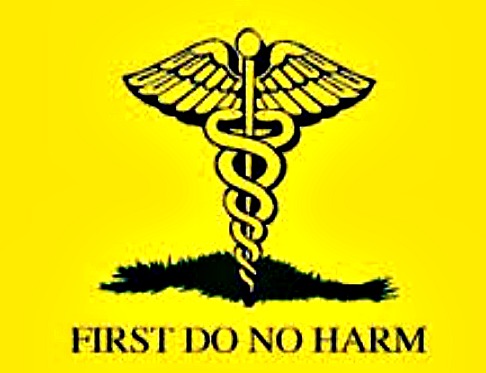
Doctors walked out of a recent Irish College of General Practioners EGM due to ‘disgust’ at the refusal to allow votes turning what should have been a genuine consultation into a mere ‘talking shop’. Regular Irish Medical Times columnist Dr Ruairi Hanley has written of his own experiences at the meeting and said the reason for the mass exodus was that members were not allowed to propose motions and vote on them, despite speaker after speaker requesting it. In effect, he said ‘democracy was suspended’.
‘The ICGP declared they were there to listen and debate. Yet in truth, an EGM without motions and without voting is a talking shop, nothing more. I also found it somewhat chilling when I listened to someone (who I don’t remember winning an election) tell us that, as paying members, we were simply not allowed to exercise basic democratic rights’, he wrote.

A small but growing minority of GPs have signed contracts with the HSE so far to provide “abortion services” from January. According to the Irish Independent, the number might run into hundreds out of the roughly 4,000 GPs in Ireland.
The compliant GPs are returning signed contracts despite the fact that clinical guidelines are still only being drafted. At the same time, GPs who returned an expression of interest in delivering the “service” are being urged to send back a signed contract by tomorrow. This would allow the HSE to send them an information pack with important details of where they would secure the drugs needed for medical abortions.
The HSE wrote to those stating: “if you could return your contractor details and acceptance form on or before Friday, December 14, it would be greatly appreciated”.
The correspondence states that this will allow “the HSE to provide you with the stock order forms for this service so that you can order the medicines from your community pharmacy of choice in advance of the commencement of the service”.

A man stole nearly €10,000 in donations after robbing two volunteers at knife-point and injuring one outside a Catholic church in Dublin yesterday.
A lone man drove into the grounds of St Aengus Parish in Tallaght yesterday morning and committed the violent robbery. It’s understood approximately €6,000 was to be donated to St Vincent de Paul and €4,000 to the church. Fr Ben Moran told the Irish Independent that the two volunteers were getting ready to transfer the money to the bank, but as they reached their car a hooded man drove up to the grounds blocking their exit. “He just casually walked up to the men while carrying a knife and said: ‘I’ll be taking that, gentlemen.'”
The volunteers resisted, but during the struggle the assailant slashed one of them in the arm. He then made off with the cash and drove away, leaving the two men in total disbelief. “It could have been a lot worse – who knows what this guy was capable of,” said Fr Moran. “The injured man ended up in hospital and needed stitches, but otherwise he’s doing fine.”
Tallaght councillor Mick Duff told the Irish Independent that he believes the man responsible must have done a significant amount of research before he carried out the robbery. “This guy definitely did his homework and must have known the routine of these two men,” he said. “This is a new low for our area. This money would have gone directly to poor and needy families – the thug that did this has literally robbed the bread from their mouths.”

The Minister for Health Simon Harris has said he is “disappointed” at comments from the Master of the Coombe Women & Infants University Hospital who warned that the hospital will not be ready to provide abortions by the planned deadline date of January 1st.
Mr Harris said in the Seanad that it is a “reality today in Ireland that some women can travel and that other women, particularly marginalised women, can’t travel. That is why I am disappointed when I hear comments like the comments from the Coombe hospital today who say they won’t be in a position to provide the services”.
The Minister then said there was a need for “clinical leadership” to “make sure that the services are in place in January.”
Independent Senator Rónán Mullen accused Mr Harris of “hustling” hospitals. “I don’t think it is good enough for the Minister to be hustling them in the language that he just did. We hear a lot these days about the need to defer to medics and medics knowing best, how we are not going to write the script for medics. But people seem to be very willing to do that when they want.”
He added: “It is entirely unfortunate to be sending out any ministerial, political message to the Coombe hospital or others. The Minister should be deferring to the medical facilitates on this one instead of hustling them on for the sake of some politically motivated time limit. That is entirely the wrong approach.”
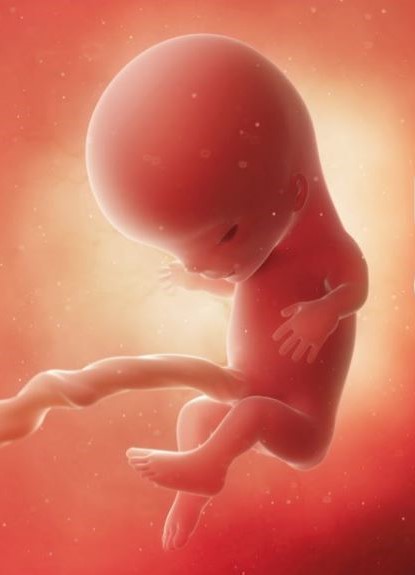
TDs have been taken to task for refusing to mandate pain-relief for babies suffering late-term abortions. Writing in the Irish Times, Rev Dr Chris Hayden, a priest of the diocese of Ferns and editor of Intercom magazine, said a vet putting down a horse will do all in his or her power to ensure that the animal is comfortable, unstressed and pain-free. What then, he asked, “might be the problem with extending the same ‘humaneness’ to an unborn human?”
Dr Hayden said that nobody is arguing that the unborn is not sentient, or that dismemberment or poisoning do not cause it agony, so it begs the question: why not make pain-relief mandatory, in law?
The answer, he writes, “is as simple as it is sinister.”
“Give any recognition, anywhere in the legal apparatus, of the sentient nature of the unborn, and you open a door towards a recognition of humanity. Open that door, and you might open another – and another. We can’t deny the reality of an unborn creature writhing in agony inside its human mother while the abortionist’s tools take hold. This has been recorded on ultrasound. We can’t deny it, but we must not recognise it either. It is an inconvenient truth.”
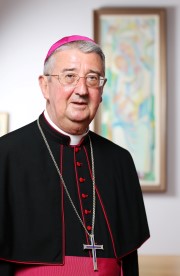
The Archbishop of Dublin has voiced his support for Catholics wishing to resist the abortion law currently going through the Oireachtas.
In remarks to the Irish Times, Archbishop Diarmuid Martin said, “There’s a clear Catholic teaching that if legislation is against the basic principles of faith of people that they can’t be forced to carry it out.” On the right of medical personnel to not be forced to participate in abortions, he said: “The Minister himself has recognised the place of conscientious objection. We’ll wait and see exactly what comes out as to whether the solutions the Minister presents are going to be adequate.”
Asked whether this right of Catholics not to obey laws in certain circumstances also included legislation on divorce, same-sex marriage and family planning, Archbishop said: “There’s a hierarchy of truths in Catholic teaching and the centrality of some aspects. If people have conscientious objection it’s a very important thing to remember it. For me, very often social change comes from people who stand up for their commitments.”